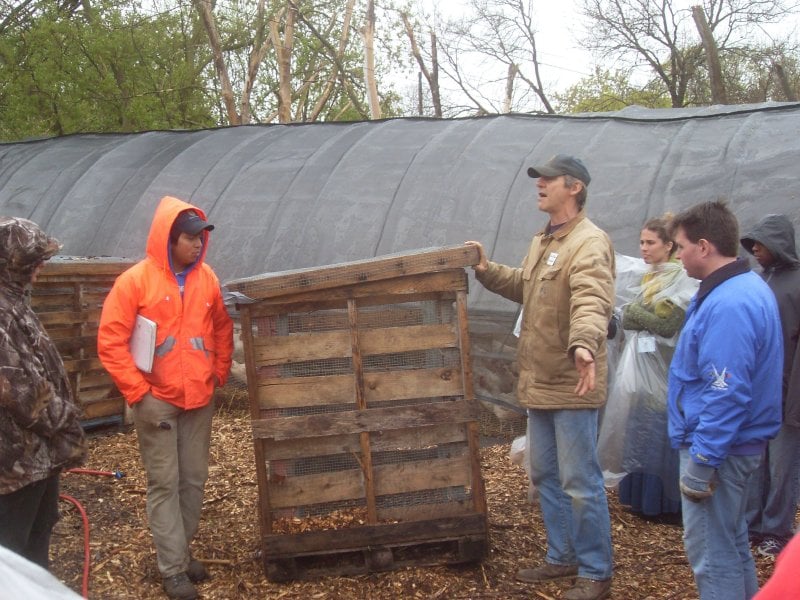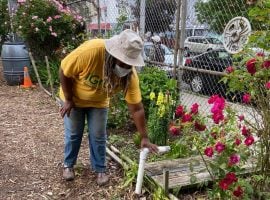
For over 35 years WhyHunger has been documenting and promoting the amazing work of community-based groups across the country, spotlighting model programs and best practices. This year WhyHunger and Growing Power have teamed up to launch the Community Learning Project for Food Justice, a new initiative to build relationships, leadership, and resource capacity development to support community based learning in the food justice movement.
Last weekend I joined eight of the 15 organizations participating in this the pilot year of the Community Learning Project for Food Justice for an intensive hands-on weekend workshop at the Growing Power headquarters in Milwaukee, WI. The workshop provided a delightful smorgasbord of crash courses in everything from aquaponics and community project design to mushroom cultivation for soil remediation and renewable energy options for your community projects. As a community gardener with a humble plot at Taqwa Community Farm in Bronx, NY, I elected to take the crash course that Growing Power is most famous for: composting and vermicomposting.

Following my passion for growing healthy, nutrient rich soil gave me an excellent opportunity to work side by side with folks from several of the Community Learning Project Partners including James Bell from Mandela MarketPlace/Mandela Foods Cooperative in Oakland, CA; Amy Wilson and Tim McCullough from Pedal Co-op in Philadelphia, PA; Ifabemi Osadele of the Oyotunji African Village in Sheldon, SC; Patsy Parker, Rachel Henderson and Rebecca Harkin from Gardening Matters’ Compostadores team based in Minneapolis, MN; Sharon Hoyer from the Dill Pickle Food Co-op in Chicago, Il; Bryan Givens from Community to Community Development in Bellingham, WA; and Tanya Selig from Community Services Unlimited in Los Angeles, CA. Together we learned the secret ingredients of creating compost AKA “black gold” the most import of which being community support.
Growing Power’s “Growing Your Community Food System from the Ground Up” weekend workshop is a key training component of the Community Learning Project for Food Justice. For many of the peer-to-peer mentoring teams it was their first opportunity to meet each other in person. Participants will continue to build their relationships and share collective knowledge over the course of the coming year through site visits, conference calls and webinars.
As the Community Learning Project for Food Justice continues, we’ll be sharing the stories of the six mentoring teams participating in this year’s pilot project. Check back periodically to follow their experiences and learn more about the amazing work they’re doing in their communities.




